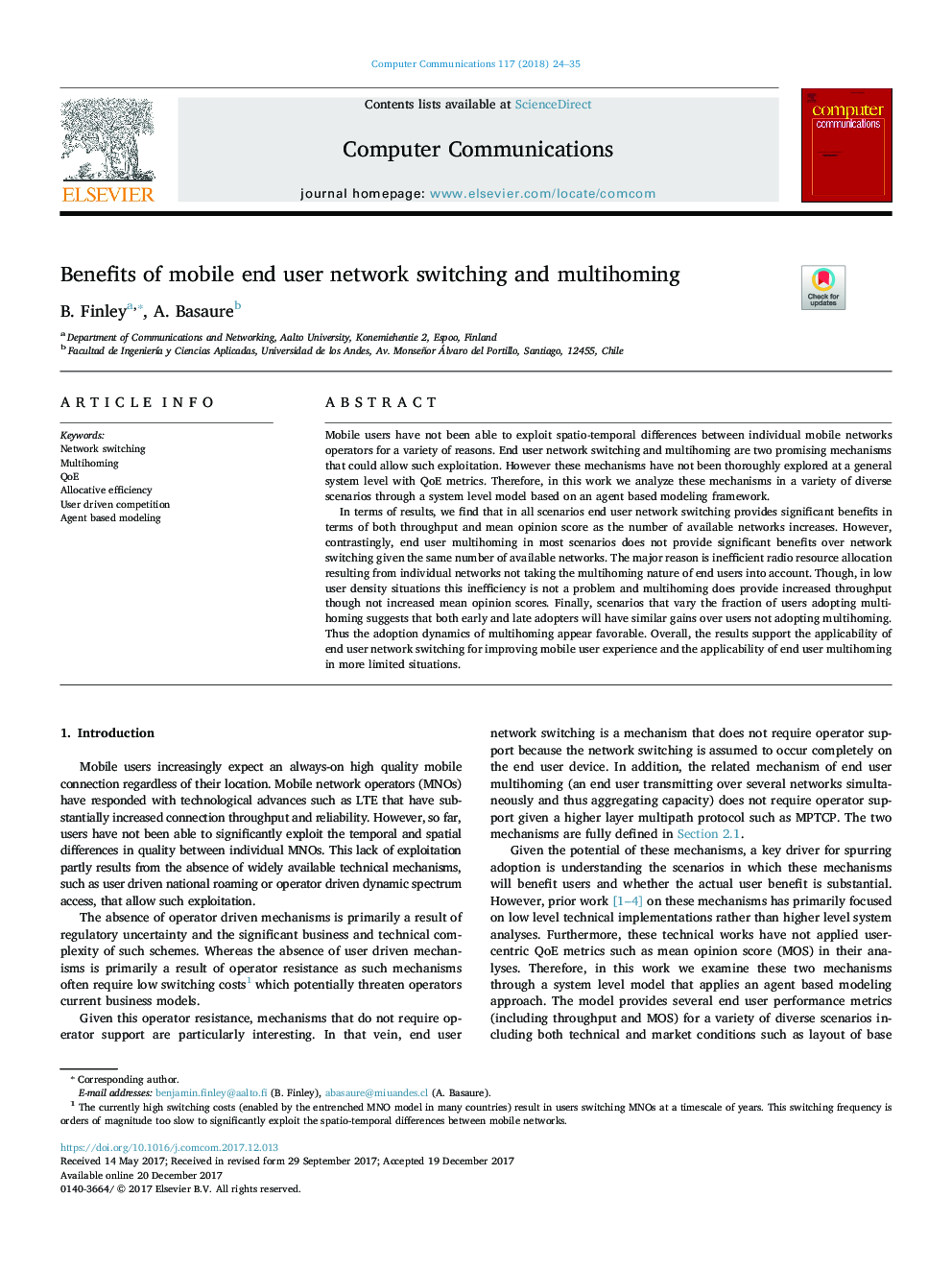| Article ID | Journal | Published Year | Pages | File Type |
|---|---|---|---|---|
| 6880114 | Computer Communications | 2018 | 12 Pages |
Abstract
In terms of results, we find that in all scenarios end user network switching provides significant benefits in terms of both throughput and mean opinion score as the number of available networks increases. However, contrastingly, end user multihoming in most scenarios does not provide significant benefits over network switching given the same number of available networks. The major reason is inefficient radio resource allocation resulting from individual networks not taking the multihoming nature of end users into account. Though, in low user density situations this inefficiency is not a problem and multihoming does provide increased throughput though not increased mean opinion scores. Finally, scenarios that vary the fraction of users adopting multihoming suggests that both early and late adopters will have similar gains over users not adopting multihoming. Thus the adoption dynamics of multihoming appear favorable. Overall, the results support the applicability of end user network switching for improving mobile user experience and the applicability of end user multihoming in more limited situations.
Related Topics
Physical Sciences and Engineering
Computer Science
Computer Networks and Communications
Authors
B. Finley, A. Basaure,
